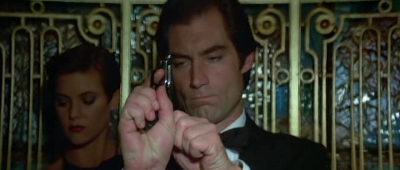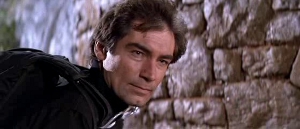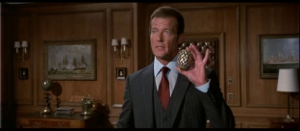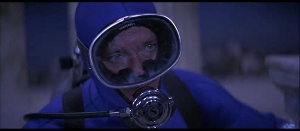
By now, EON Productions had these Bond films running on a rock-solid two year schedule. Writers Richard Maibaum and Michael G. Wilson seemed to have hit upon a winning formula: fuse the few remaining pieces of Fleming’s short stories together with plot elements “torn straight from the headlines of today’s newspapers.” This served the twin purpose of keeping James Bond “relevant” to a changing movie landscape and shaking up the stale formulas that had constrained the series for two decades.
Inevitably, the loudest criticisms of The Living Daylights and its sequel come from Bond fans who felt (and still feel) this series grand quest for “relevance” was a whole lot of tilting at windmills. The Dalton Era gets a lot of flack for a lot of things, but nothing more so than its lack of “fun”; that “campy” “charm” which supposedly made the Moore Era so much more “enjoyable” and the Connery films “instant classics.” Gods forbid anyone treat those like “serious” spy-fi action pictures…even if that’s exactly what they were intended to be.
They succeed on their own merits with no “camp,” required, save the kind the audience brings with it via the expectations in their heads. If you want real “camp,” I’ve got a version of Casino Royale you should check out (no, not that one)…me, I think Bond should’ve gone “darker” decades before he actually did. He might’ve stayed ahead of the trends instead of constantly playing catch-up. Licence to Kill almost does this and, on the strength of that almost, becomes my favorite Bond film of its decade…and the preceding one. Continue reading Licence to Kill (1989)



